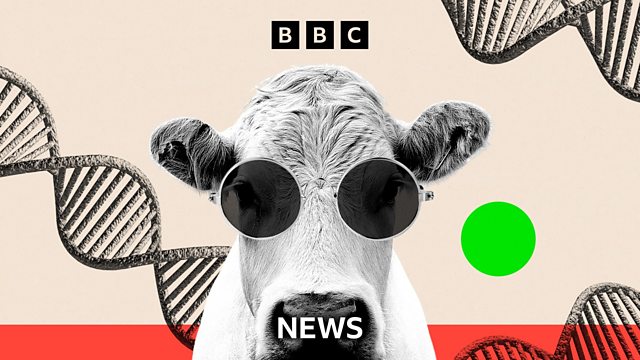Can gene editing be safe and ethical?
The Βι¶ΉΤΌΕΔ's science correspondent Pallab Ghosh takes us through the great gene editing debate.
Modern genetics has enabled scientists to make precise, targeted changes to the DNA of organisms in a lab. They claim such advances will lead to new, more productive, disease-resistant crops and animals. The science is still in its infancy, but gene-edited foods are already on the shelves in Japan: tomatoes rich in a chemical that supposedly promotes calmness; red sea bream with extra edible flesh; and puffer fish that grow more quickly. In the US, too, firms are developing heat-resistant cattle, pit-less cherries and seedless blackberries. But opponents say gene editing is still not proven to be safe and that they remain concerned about the implications for animal welfare. Now, a law permitting gene-edited food to be sold in the UK has been paused and some British scientists warn they could be overtaken by other countries. In this episode of our Reporter Reads podcast, the Βι¶ΉΤΌΕΔ's science correspondent Pallab Ghosh takes us through the great gene editing debate. (Credit: Getty Images)

